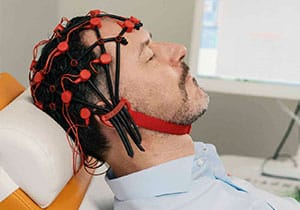
Tinnitus
Tinnitus (from the Latin tinnire = ringing) (synonyms: ringing in the ears; ringing in the ears) refers to noises in the ears that occur permanently or temporarily, in one or both ears and are only perceived by the person affected. Sounds are perceived to which no external sound sources can be attributed, hence the term “phantom noise”.
Symptoms and complaints of tinnitus
Tinnitus is one of the most common complaints in ENT practice and can have a variety of psychological and physical causes. The perception of tinnitus is often stress-related, exacerbated by external and internal stress, with a tendency to become persistently chronic, as tinnitus itself can be a high stress factor with a high level of suffering.
- It buzzes, beeps, rustles, whistles, hisses or rattles in your ears and head.
- Some people affected by tinnitus tend to have poor posture or tense their shoulder, forehead and jaw muscles excessively in stressful situations.
The incessant noises make you irritable, depressed and, over time, anxious and desperate.




